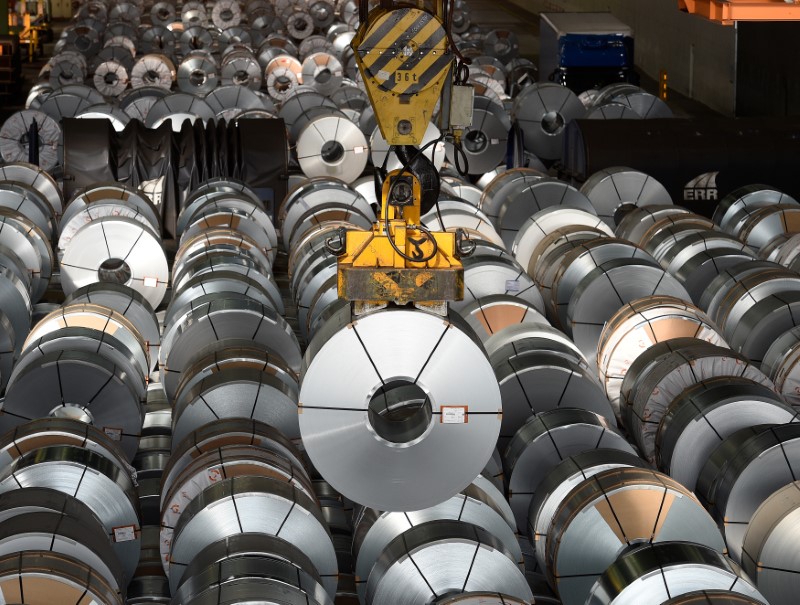By Joseph Nasr
BERLIN (Reuters) - German industrial production fell unexpectedly in October, data showed on Thursday, but the cause was probably public holidays that let workers take long weekends, the Economy Ministry and analysts said.
Industrial output decreased by 1.4 percent after falling by a revised 0.9 percent in September. The two successive declines came after an increase of 2.6 percent in August, the biggest rise in more than six years.
"Looking at the bigger picture, despite today’s drop, developments over the year 2017 so far confirm that the weak spots of the past few years – investment and industrial production – have gradually returned as a strong growth engine," Carsten Brzeski of ING Diba wrote in a note.
"Judging from the data for the first 10 months of the year, industrial production has had its best year since 2011."
Europe's largest economy is firing on all cylinders. Consumption, state spending and rising exports are driving growth in both industry and services.
Supported by low interest rates and a robust labor market, the economy is weathering a political impasse resulting from Chancellor Angela Merkel's failure to form a government since an election in September.
She is expected to open talks next week with the center-left Social Democrats (SPD) on renewing their coalition, which has governed Germany since 2013.
'SO WELL'
Surveys indicate that investors want to know how expensive an alliance with the SPD would be. The party is demanding more rights for workers, a broader social security net and significantly more investments in education and infrastructure.
Despite the political uncertainty, the economy continues to power ahead. Data released on Wednesday showed that industrial orders had risen unexpectedly in October, suggesting the economy will strengthen in coming months.
The October industrial output reading compared with the mid-range forecast in a Reuters poll for a rise of 1.0 percent. A breakdown of the data showed that output fell in all industrial sectors except for energy.

"The favorable situation concerning orders and, above all, more optimistic business expectations promise a continuation of good industrial activity," the economy ministry said of the fall in industrial output.
Capital goods, consumer goods, intermediate goods and construction fell the most.
"The irony of today’s drop in industrial production is that it probably reflects the strength and not the weakness of the German economy," Brzeski said. "Apparently it is going so well that people and companies can simply afford to take some time off."